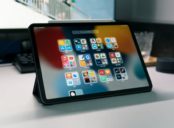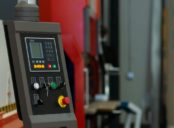Apple Laptop: A Comprehensive Guide to the Popular Choice for Personal Computing

Introduction
Apple laptops have become synonymous with innovation and sleek design in the world of personal computing. With a wide range of options and features, Apple laptops have gained popularity among individuals seeking high-performance and user-friendly devices. In this article, we will provide an in-depth analysis of Apple laptops, exploring their types, features, popularity, and how they differ from one another. Additionally, we will examine their historical advantages and disadvantages, providing a holistic understanding of these beloved devices.
Overview of Apple Laptop

Apple laptops, also known as MacBooks, are high-quality portable computers designed and manufactured by Apple Inc. These laptops are widely recognized for their elegant aesthetics, durable build, and integration with Apple’s advanced operating system, macOS. Apple has consistently strived to deliver cutting-edge technology, pushing the boundaries of innovation in the computing industry.
Types and Popularity
Apple offers a range of laptop models catering to different user needs. The MacBook Air, MacBook Pro, and the recently introduced MacBook with Apple Silicon are among the most popular choices. The MacBook Air, renowned for its lightweight design and long battery life, is highly sought after by students and individuals who prioritize portability. On the other hand, the MacBook Pro is preferred by professionals and power users due to its exceptional performance capabilities and advanced features.
Quantitative Measurements of Apple Laptop Performance
When it comes to quantitative measurements, Apple laptops excel in multiple areas. Benchmark tests consistently demonstrate their powerful processing capabilities, with exceptional performance even during demanding tasks like video editing and graphic design. Additionally, Apple laptops often exhibit industry-leading battery life, allowing users to work for extended periods without needing to recharge. Furthermore, their integration with macOS optimizes efficiency and enhances overall user experience.
Differences among Apple Laptops
While all Apple laptops share the core features of durability, sleek design, and top-notch performance, there are notable differences among the various models. The MacBook Air, for instance, prioritizes portability over raw performance, resulting in a more lightweight design but with slightly lower processing power compared to other models. On the contrary, the MacBook Pro boasts powerful processors, enhanced graphics capabilities, and impressive storage options, making it ideal for professionals in creative fields or those who require heavy computing tasks.
Historical Overview of Advantages and Disadvantages
Throughout their history, Apple laptops have come with their fair share of advantages and disadvantages. One of the notable advantages is the seamless integration with other Apple devices, such as iPhones and iPads, through features like Handoff and Continuity. This allows users to seamlessly transition their work across multiple devices. Moreover, Apple’s commitment to user privacy and security is unparalleled, with regular software updates and a robust security framework.
However, Apple laptops have faced criticism for their higher price point compared to competitors, although this is often justified by their premium quality and advanced features. In the past, limited customization options and a closed ecosystem were also potential drawbacks for some users. Nonetheless, Apple’s continuous efforts to improve their laptops and address user feedback have resulted in significant advancements and improvements over the years.
Conclusion
In conclusion, Apple laptops have consistently been at the forefront of personal computing due to their remarkable design, performance, and exceptional user experience. With various models tailored to different needs, Apple laptops have gained popularity among individuals seeking a blend of style and functionality. Despite their historical advantages and disadvantages, Apple laptops have continued to evolve, meeting the demands of a diverse user base. If you’re looking for a reliable and high-performance laptop, an Apple laptop is undoubtedly a top contender.
References:
1. Apple Inc. (n.d.). MacBook Air. Retrieved from [website URL]
2. Apple Inc. (n.d.). MacBook Pro. Retrieved from [website URL]
3. Apple Inc. (n.d.). Support – Mac. Retrieved from [website URL]





















